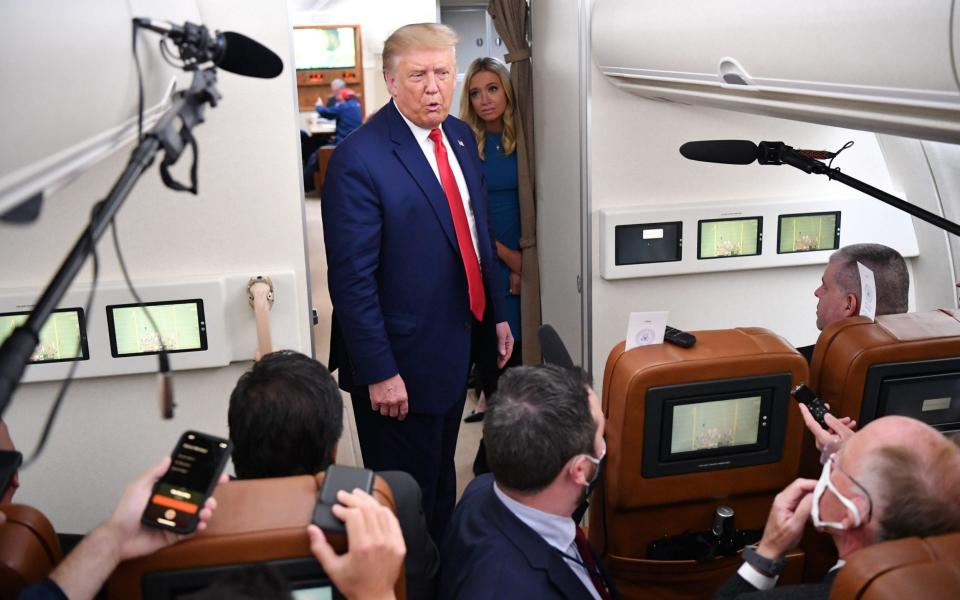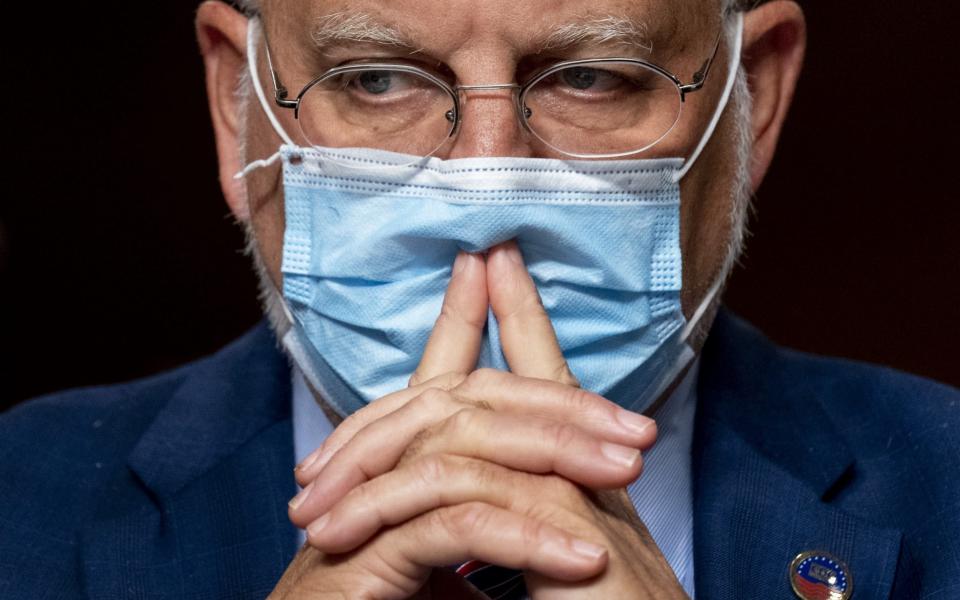Only half of Americans would take Covid-19 vaccine as they lose faith in process

Only half of Americans are now willing to take a vaccine for Covid-19, a significant drop due to growing concerns the approvals process will be rushed.
Fifty one per cent of people would be happy to take a vaccine if it was available today, according to a new poll by the Pew Research Group, which found 77 per cent were worried it will be distributed before its safety and effectiveness are fully understood.
Intent to get a Covid-19 vaccine has fallen from 72 per cent in May, a stunning 21 percentage point drop.
A decline was seen among people of all political persuasions, however, Democrats and those who lean to the Democratic Party are 14 percentage points more likely than Republicans to say they would probably or definitely get a vaccine: 58 per cent to 44 per cent.
The poll surveyed 10,093 American adults between September 8 and 13, around the time British pharmaceutical company AstraZeneca announced it was temporarily halting trials after a participant suffered a neurological side effect.

Among the roughly half of Americans who say they would not get a vaccine, 76 per cent said concern about side effects is a major reason why they would definitely or probably not get it.
It also came after the US Food and Drug Administration (FDA) said it could use its emergency use approval for a Covid-19 vaccine before the final trial phase was complete.
Researchers are still not sure how effective a Covid-19 vaccine will ultimately be. The FDA has said it would authorise a vaccine if it was safe and at least 50 per cent effective in preventing the disease or decreasing the severity of infections, although Dr Anthony Fauci, director of the National Institute of Allergy and Infectious Diseases, has said scientists are hoping for a vaccine that is at least 75 per cent effective.
Donald Trump has publicly contradicted and undermined leading members of the science community, then asked the public to trust him to deliver a “safe and effective vaccine”.
Earlier this week, he poured scorn on Dr Robert Redfield, the director of the Centers for Disease Control and Prevention (CDC), for saying a coronavirus vaccine would not be widely available before the middle of next year.

Dr Redfield also rankled Mr Trump by saying face masks are “more guaranteed to protect me against Covid than when I take a Covid vaccine.”
"I think he made a mistake when he said that. It's just incorrect information," Mr Trump responded on Wednesday in a press briefing. "I believe he was confused. I think he just misunderstood the question, probably."
The president’s promise to deliver a safe vaccine this year, “or maybe even sooner,” has become central to his reelection campaign.
Health and science experts say that Mr Trump’s repeated swipes at government scientists have, however, undermined public trust and reduced confidence in an eventual vaccine.
Approval ratings on his handling of the coronavirus outbreak plummeted. Joe Biden, Democratic presidential nominee, is now leading on the issue in almost all national polls.
At least 194,000 people have died of the novel coronavirus in the US since February. More than 6.6 million cases have been reported in the country, while the global case count surpassed 30 million on Thursday, according to data compiled by Johns Hopkins University.

